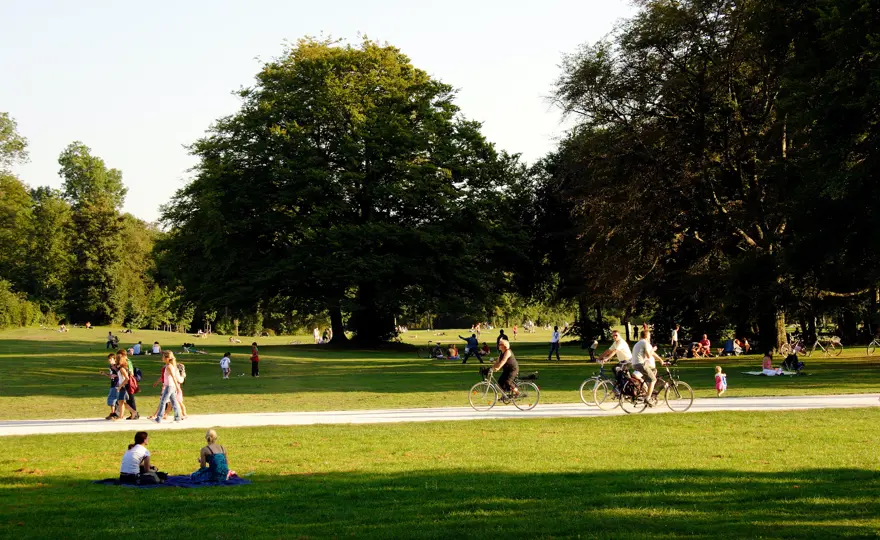ClientEarth Communications
20th November 2020


In the wake of Prime Minister Boris Johnson's Ten Point Plan for a Green Industrial Revolution, we sat down with Head of Public Affairs and Campaigning, Simon Alcock, to talk about the potential for us all to emerge from a global pandemic happier, healthier and most importantly, greener.
The global Covid-19 pandemic has had an unprecedented social and economic impact and will change the way we live and work for years to come. As we rebuild our economy, society and local communities, we have a once-in-a-lifetime opportunity to put people and planet at the heart of the recovery.
This week, Prime Minister Boris Johnson revealed his ‘Ten Point Plan’ for a Green Industrial Revolution. We spoke to ClientEarth’s Head of Public Affairs and Campaigning to discuss his thoughts on how we could seize this unique moment to create a greener future.
“If you look at the situation that we’re in, it’s clear that we’ve got to repair our economy. We’ve seen people’s livelihoods at risk, and people lose their livelihoods completely, and so governments around the world are going to have to repair the economy. This will involve a huge investment of money to not only save it, but also rebuild it. That gives us an opportunity to make the case that the recovery needs to be green, because alongside the economic crisis that we have, we also have a climate crisis. We know that if we don’t start to take action in the near future, we’re not going to have much of a chance of overcoming it.
So this is a once in a lifetime opportunity. If we’re going to rebuild our economy and avoid the dangers of climate change, we have to have a recovery that is green, but also equitable and resilient. What do I mean by that? Well it will need to prioritise growth of clean and green industries, but also the health and wellbeing of citizens, ensuring that people benefit from this recovery and that we don’t leave them behind.
Just because that opportunity for a green recovery is clear to us though, does not mean it’ll necessarily happen, so we need to make the case for why the recovery needs to be green. As well as opportunities, there will be risks. There is soon going to be pressure on governments around the world to rebuild and regrow their economies, leading to some people calling for deregulations, potentially around the environment. So, we need to push for a green recovery, but guard against the risks too."
“We’re certainly hearing positive noises from many countries. We’ve seen Germany have promised €40 billion this year on climate spending, and France €31 billion – the UK has only promised £8 billion thus far, but we’ve just had the new Ten Point Plan from the Prime Minister this week, the likes of which we’ve not seen before. The European Union has prioritised the Green Deal, and we’ve seen the US President Elect promise a huge plan worth $2 trillion to deal with climate change, so the signs are promising. We now need to ensure that those promises are followed through with concrete action.”
We’re seeing big promises made, and the issue of climate change is on the political agenda in a way it has never been before, which is great. We now need to ensure that these promises are matched with real ambition, real funding and that they’re fair.Simon Alcock, Head, Public Affairs and Campaigning

“The Ten Point Plan has to be welcomed. It is a positive step from the UK government without question. We’ve campaigned for a long time now around bringing the Diesel and Petrol phase-out to 2030, and it’s good to see promises like that in the plan. I would say there are three tests for the plan. Firstly, is it ambitious enough? Will it meet our climate change and net zero targets? We need to look at it in detail and ensure that it does.
Secondly, is it fair? Will it improve people’s lives by creating jobs, not leaving people behind and not putting huge costs on people’s bills? I think it's really important also that polluting industries play their part – the car industry for example has helped get us into this mess by creating so many polluting vehicles, and it now has to help get us out of this mess too. I think people want to see polluting industries play their role, they want to see the government match that, and I think it’s really important that the costs of this plan are not borne by working people.
Thirdly, is the finance there? We’ve seen £8 billion pledged this year, which is good, but we need to see that at least matched each year. Other countries have promised more money than the UK, but the Ten Point Plan is a positive step for this government. The fact that the Prime Minister has put this at the centre of his agenda has to be welcomed – we now need to see that it is genuine ambition, that the plan is fair for working people, and that the money is there for it to succeed.”
“The election of Joe Biden is an incredibly important development with regard climate change. We cannot underestimate the importance of him getting elected. It means the US will once more be part of the Paris Agreement, he’s promised a hugely ambitious plan to tackle climate change, and also it means much higher chances of a successful COP26 next year.
Building on China’s net zero promises and those of other countries, we now have the chance to have a successful summit and progress with this agenda in a way that would have been impossible had Trump been re-elected. That would have been catastrophic for climate change. I think it gives us all hope, and we now need to work to ensure that the promises made during the election are fulfilled during Biden’s presidency.”
“We’re seeing big promises made, and the issue of climate change is on the political agenda in a way it has never been before, which is great. We now need to ensure that these promises are matched with real ambition, real funding and that they’re fair and don’t leave people behind."
“If we’re going to tackle climate change and succeed with the Ten Point Plan in the UK, then we will have to change the way we live our lives. It is going to be a big ask of people, and I think we need to level with them about that. People understand that doing the recycling and not using plastic bags isn’t enough anymore, and that we’re going to have to go further, changing the ways we heat our homes, changing the ways we travel through our towns and cities.
In terms of what individuals can do, more important is ensuring that governments support people through this transition. I can’t stress this enough – we’ve got to take people with us, we’ve got to have an open discourse with them about how our lives are going to change, and we’ve got to provide the financial support and incentives for that to happen. It’s not just about people doing a bit more recycling, it’s got to go further than that, but it’s got to be led by governments and industries, and is down to them to provide people with support. If we’re going to tackle this, we can’t just leave it up to people individually.”